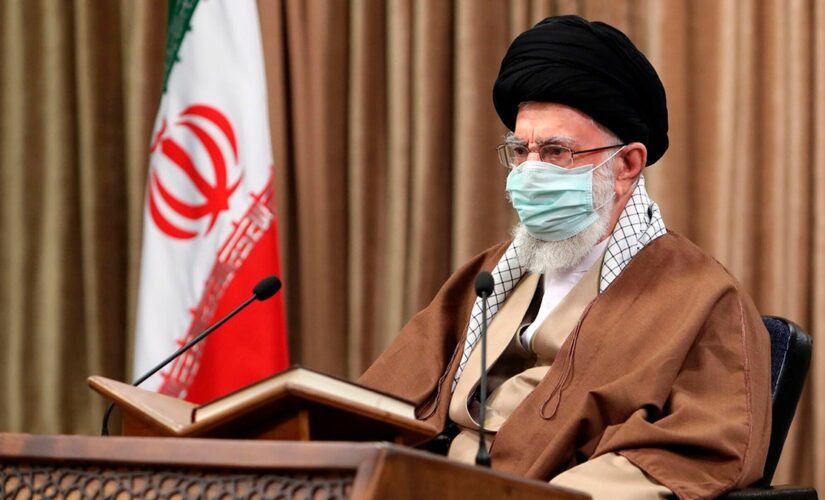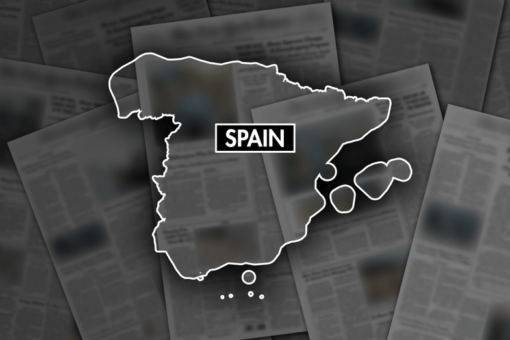NEWYou can now listen to Fox News articles!
Iran is dropping some of its primary demands that were holding up progress toward renewing the Obama-era nuclear deal with the country.
“We think they have finally crossed the Rubicon and moved toward possibly getting back into the deal on terms that President Biden can accept,” a senior U.S. official said, according to a Tuesday Reuters report. “If we are closer today, it’s because Iran has moved. They conceded on issues that they have been holding onto from the beginning.”
The news would be a welcome development for the Biden administration, which has made reviving the nuclear agreement signed under former President Barack Obama a cornerstone of its policy on Iran. The deal, officially known as the Joint Comprehensive Plan of Action, was scrapped by former President Donald Trump in May 2018 in favor of a policy of “maximum pressure” on Iran.
The senior official told Reuters that the U.S. will now look to respond to a draft agreement proposed by the European Union, something made possible by Iran dropping some of its demands.
ISRAEL SAYS IRAN REFUSES FINAL NUCLEAR DEAL OFFER: ‘TIME TO WALK AWAY’
Iranian Supreme Leader Ayatollah Ali Khamenei.
(Office of the Iranian Supreme Leader via AP)
“They came back last week and basically dropped the main hang-ups to a deal,” the official said. “We’re studying Iran’s response now and we’ll get back to them soon.”
One of those demands was that the U.S. remove Iran’s Revolutionary Guard Corps from its list of foreign terrorist organizations, something the official told Reuters was never in the cards.
“We said under no circumstances would we do that. They continued to push it. A month ago they started to soften that core demand and said you can keep the (FTO) designation but we would like to lift it from a number of companies affiliated with the IRGC. We said ‘no we’re not going to do that,'” the official said.
Another sticking point was Iran’s demand that the International Atomic Energy Agency close its investigations into unexplained traces of uranium.
ASSASSINATION ATTEMPTS: IRAN THREATENS, TARGETS DISSIDENTS ON AMERICAN SOIL
Iran’s Foreign Minister Hossein Amir-Abdollahian (R) attends a press conference with Josep Borell, the High Representative of the European Union for Foreign Affairs and Security Policy (C) at the foreign ministry headquarters in Iran’s capital Tehran.
(Photo by ATTA KENARE/AFP via Getty Images)
“Iran wants guarantees that the IAEA would close all of them. We said we would never accept that,” the official said.
But not everyone is celebrating a potential return to a deal that some critics say would at best only delay Iran’s pursuit of nuclear weapons.
“I call on (President) Biden & the US administration to refrain, even now at this last minute, from signing the agreement with Iran,” Israeli Prime Minister Naftali Bennett said on Twitter Tuesday. “This agreement will send approximately a quarter of a trillion dollars to the Iranian terror administration’s pocket and to its regional proxies.”
Bennett argued that the deal would “enable Iran to develop, install and operate centrifuges, with almost no restrictions, in a mere two years.”
“Throughout the past year, even when it was very close, we successfully convinced our White House counterparts not to give in to Iranian demands,” he continued. “I hope this will remain the case.”
“I think the Biden administration is preparing lipstick to put on a pig,” James Phillips, the senior research fellow for foreign policy at the Heritage Foundation, told Fox News Digital Tuesday. “It is talking up the supposed benefits of returning to the 2015 nuclear deal, which it implicitly recognized as being too weak and too short.”
CLICK HERE TO GET THE FOX NEWS APP
President Biden.
(AP Photo/Patrick Semansky)
Phillips argued that President Biden promised a stronger deal than the one signed during his time as vice president, but concessions made by the current administration won’t help prevent a nuclear-armed Iran.
“It is happy to kick the can down the road by appeasing Iran by lifting sanctions,” Phillips said of the Biden administration. “It hopes that deep U.S. concessions have bought it a diplomatic reprieve from a nuclear crisis and from Iran’s regional attacks. But I think Iran’s untrustworthy regime will disappoint it on both fronts.”
Meanwhile, Bennett made clear that Israel is “not a party” to a potential new agreement.
“Israel is not committed to any of the restrictions stemming from the agreement and will utilize all available tools to prevent the Iranian nuclear program from advancing,” he said.




